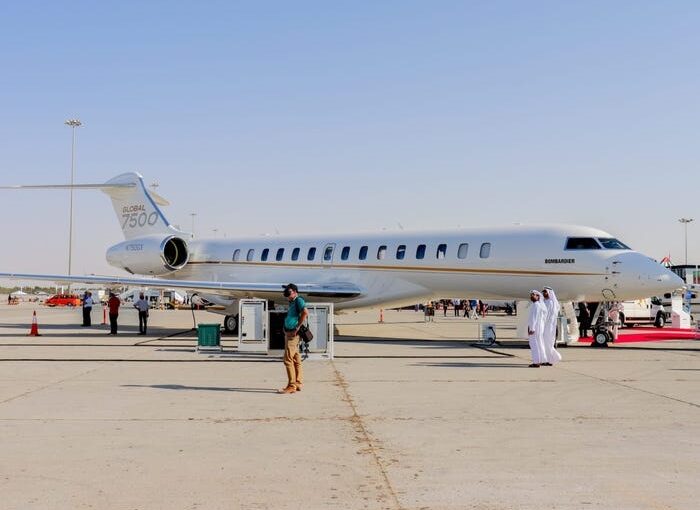Canada’s top export might just be its aircraft, thanks in large part to one company; Bombardier.
The Canadian business aircraft manufacturer has done what America’s Gulfstream and France’s Dassault Aviation have still not been able to: bring a wide-cabin aircraft into service that can fly more than 7,500 nautical miles.
The Bombardier Global 7500 holds numerous titles, including the world’s largest purpose-built business jet and the longest range purpose-built business jet. A range of up to 7,700 nautical miles allows travelers to cross continents with ease while flying at speeds of up to Mach .925.

Thomas Pallini/Insider
It’s the latest feather in Bombardier’s cap after also producing the CSeries commercial airliner, now the Airbus A220, that’s taking the aviation industry by storm.
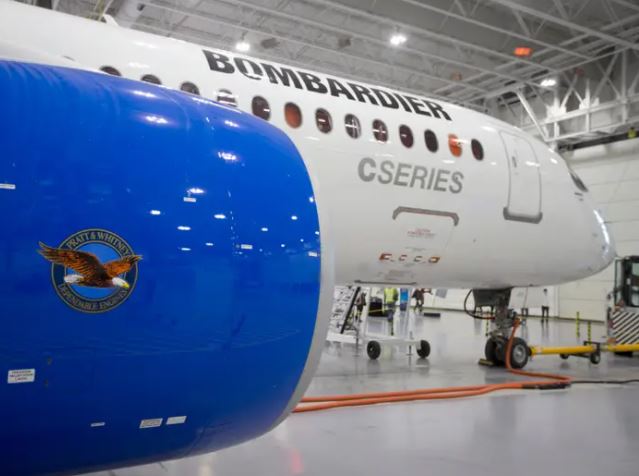
But the next step for Bombardier isn’t necessarily to one-up the Global 7500, even in the face of new aircraft competition from Gulfstream and Dassault.
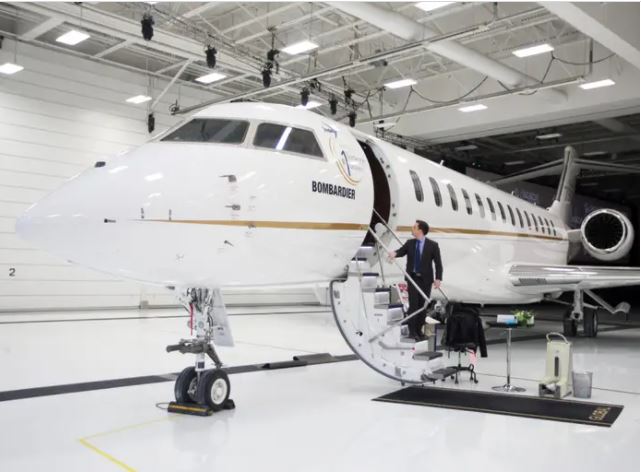
Eric Martel, Bombardier’s Chief Executive Officer, told Insider that it’s possible that the Global 7500 will be the largest business jet aircraft that the Canadian manufacturer ever builds. Bombardier’s customer base, he says, is content with the capabilities of the Global 7500 and that there are better opportunities for the manufacturer in the medium-sized aircraft realm.

“There’s a time when a customer says ‘flying 17 hours in an airplane is a lot, I don’t need more than that,’” Martel said. “In terms of building bigger for more range, is it worth it? I don’t know.”
Bombardier brought one of its Global 7500 demonstration aircraft to the Dubai Airshow in November. Here’s what it’s like inside.
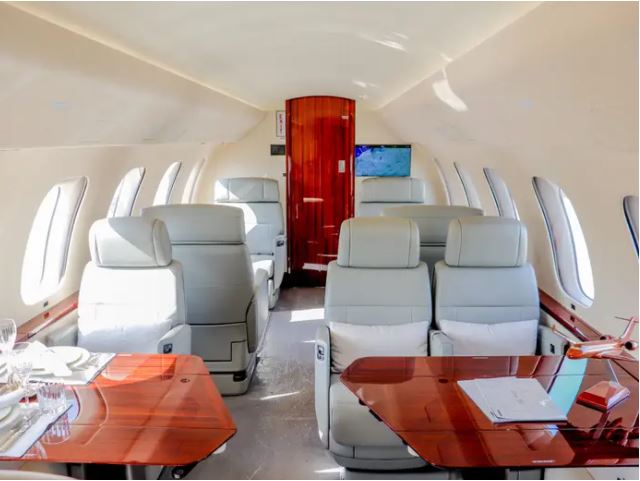
The Global 7500 can seat up to 19 passengers in its spacious cabin that offers four distinct living areas, as well as a full galley and crew rest area.
Bombardier’s demonstration aircraft features a relatively high-density configuration with 17 seats in total across its four living areas.
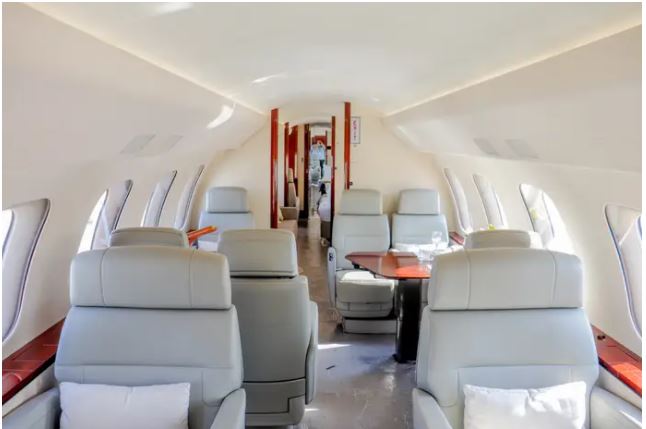
Aircraft owners can, however, fully customize their aircraft to their personal desires with as many or as few seats as possible.
Travelers are first greeted by the club suite, the quintessential aspect of a wide-cabin private jet aircraft that features four seats in total.

The principal flyer will typically occupy one of these seats for takeoff before retreating to the rest of the aircraft for cruise flight and returning once again for landing.

The layout is simple yet timeless with nearly every private jet aircraft featuring this type of seating area. Each club seat in the section is Bombardier’s “nuage” seat which is noticeably larger than the traditional private aircraft seat.
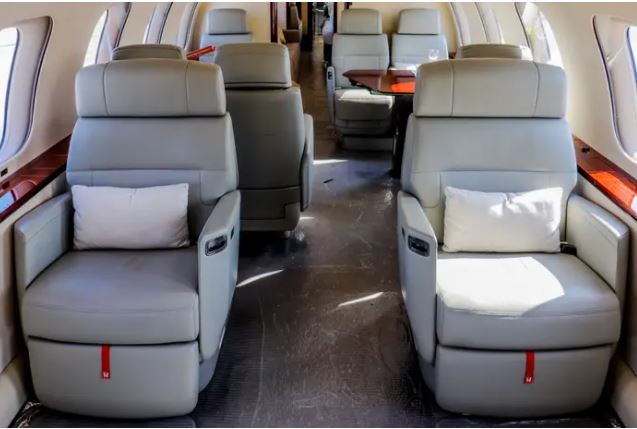
A Bombardier innovation, the nuage seat features a unique tilt system that offers a deep recline, floating base, and tilting headrest, making them ideal for the long-haul flights of which the Global 7500 is capable.
The conference suite follows the club suite with seating for six around two large tables.

Bombardier’s design differs slightly from the traditional design as three seats surround each side of the table across the center aisle.
The traditional design typically calls for four seats around a single table on one side of the aircraft, which is sometimes accompanied by another adjacent table surround by a single pair of seats on the opposite side of the aisle.
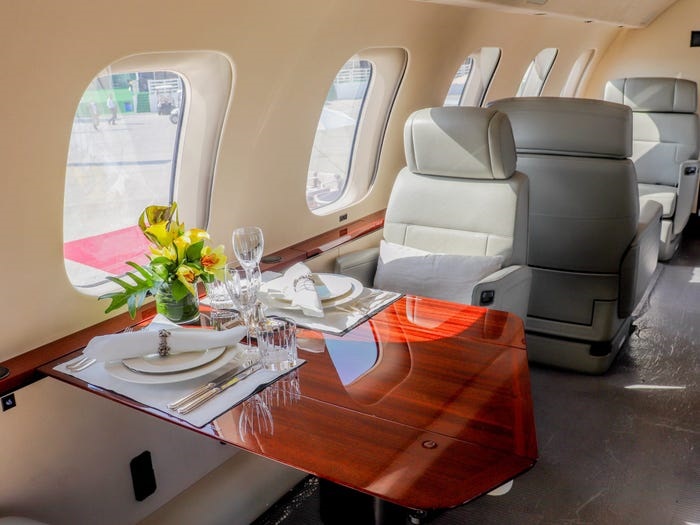
Thomas Pallini/Insider
The two tables can, however, be connected with a leaf across the center aisle.
The conference suite is the ideal setting on the aircraft to have formal meals and even hold meetings if the flight is business-oriented.
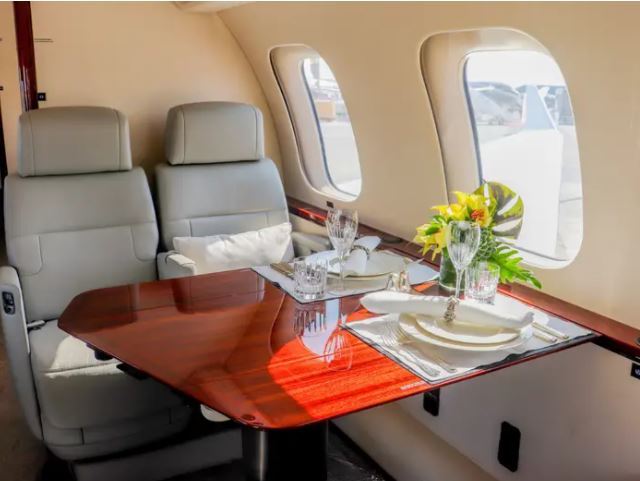
Thomas Pallini/Insider
A table leaf can connect the two sections across the main aisle during meal times or when meetings occur to create one.
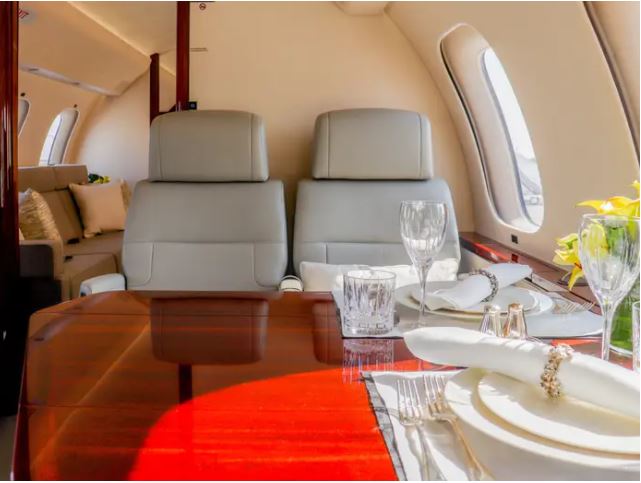
Thomas Pallini/Insider
The only downside is that it blocks the main aisle entirely when in use, blocking off half the aircraft.
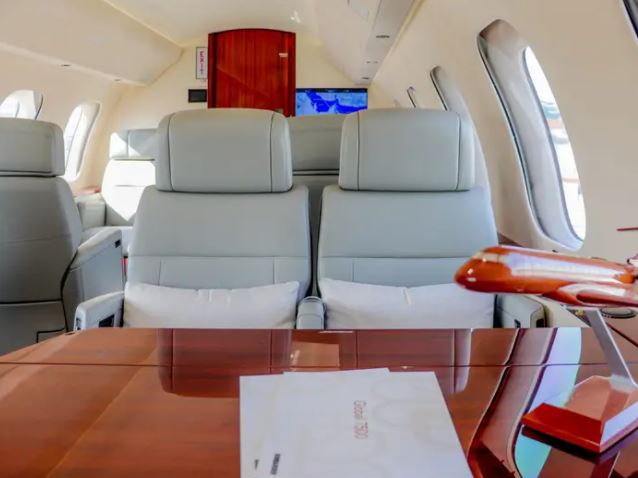
Thomas Pallini/Insider
Once the meals are finished or the day’s business has been concluded, travelers can retreat to the entertainment suite to relax.

Thomas Pallini/Insider
Nestled in between the bedroom and the communal living area, the entertainment suite acts as the living room of the aircraft as it will often feature at least one divan.
Bombardier opted to showcase an entertainment suite setup with two parallel divans.
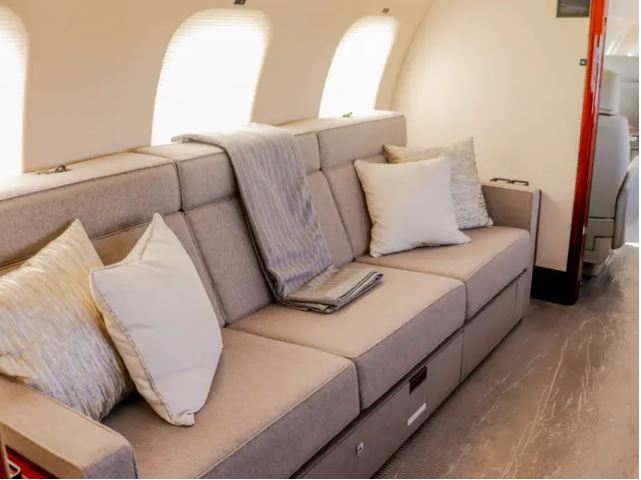
Thomas Pallini/Insider
This space is also one the most customizable on the aircraft and owners can choose to replace the second divan with a credenza and entertainment screen if they so desire.
Having two divans maximizes the passenger count by adding another bank of seating that can also be turned into beds if need be.
And once the pocket doors are shut, the suite is completely private and closed off from the rest of the aircraft.
The final living space of the aircraft is the bedroom, arguably the centerpiece of the Global 7500.
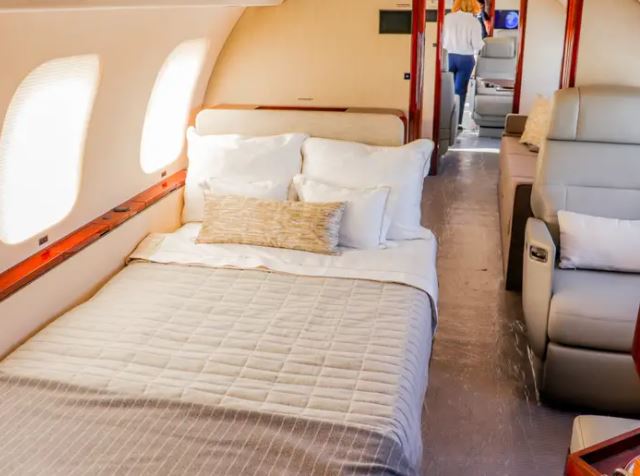
Thomas Pallini/Insider
A full-size bed allows travelers to enjoy a night’s rest on the aircraft in one of the most comfortable ways possible, a luxury for which most smaller business jet aircraft do not have the space.
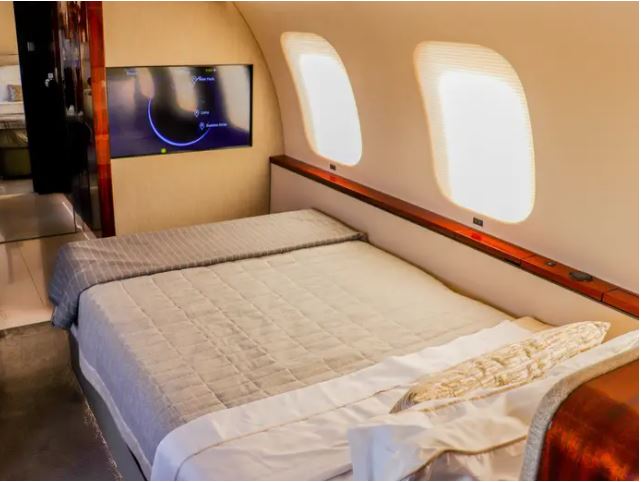
Thomas Pallini/Insider
Opposite the bed, in Bombardier’s configuration, is a single club seat that can act as a desk thanks to the table that extends from the aircraft’s sidewall.
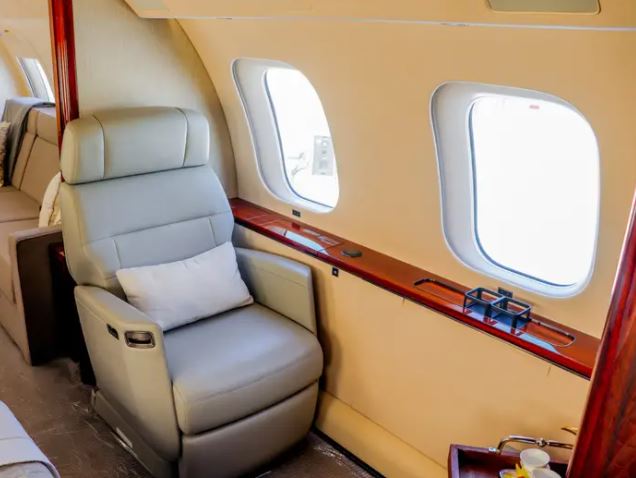
Thomas Pallini/Insider
The cabin environment can be controlled in numerous ways, including through touch-screen control panels found in each section of the aircraft. Everything from lighting to cabin climate can be controlled by passengers or one of the crew.
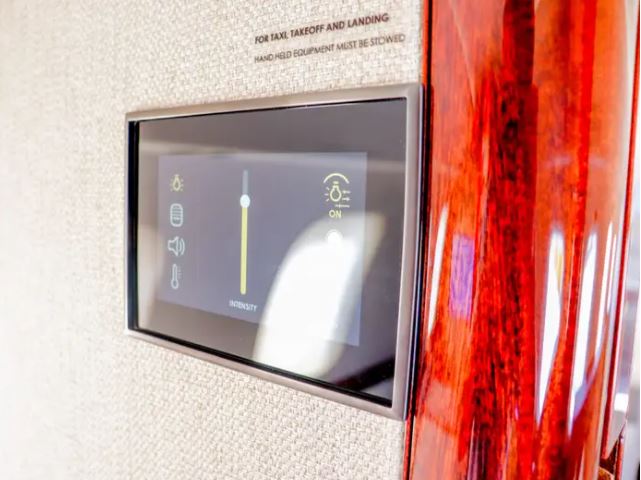
Thomas Pallini/Insider
Passengers also have their own controls at each seat that controls local amenities such as the personal reading lamp and window shade.
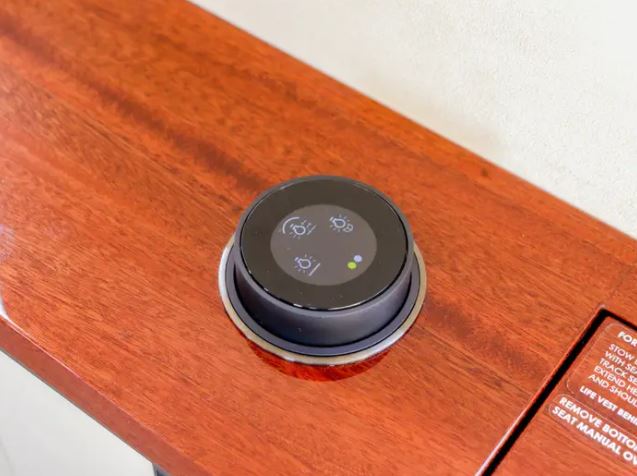
Thomas Pallini/Insider
Meals for the flight can be crafted in the galley of the aircraft that features a large workspace for cabin attendants.

Thomas Pallini/Insider
Restaurant quality meals can be cooked and heated using the aircraft’s microwave and convection oven.
There’s even storage space for formal glassware to be used throughout the flight.
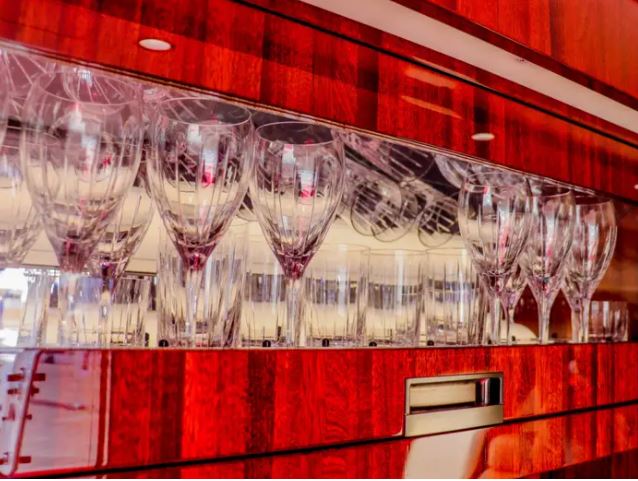
Thomas Pallini/Insider
Having multiple pilots is a requirement on the longer flights of which the Global 7500 is capable. Just one flight on the aircraft can take travelers from New York to Hong Kong; Toronto to Cape Town; or London to Honolulu under the right conditions.
Pilots also have their own private space in the form of a crew rest area towards the front of the aircraft.

Thomas Pallini/Insider
So while the Global 7500 may just be the largest aircraft that Bombardier ever builds, the manufacturer is content with the superior product that it has created.
“We always look at what our competitors are doing and they always look at what we are doing, but I feel very very strong about what we are doing right now,” Martel said. “I don’t feel any pressure right now to come up with something new. “
Source: myJoy
